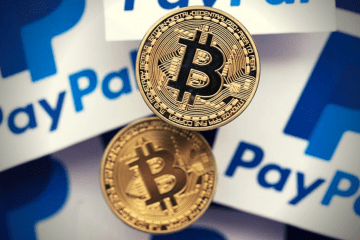Facebook’s vision for a new cryptocurrency gets watered down as it attempts to woo regulators
Facebook’s cryptocurrency project is taking a new, scaled-down approach as transactions increasingly take place online during the coronavirus pandemic.
The Libra Association, an independent group organized by Facebook to manage the libra crytocurrency, said it now plans to offer stable coins backed by just one nation’s currency in addition to its coins backed by multiple currencies. That means some coins offered by the group would serve as the equivalent value of a U.S. dollar or a Euro, for example. The change comes after Facebook’s plans for libra were shot down by lawmakers around the world who worried about a company with a history of privacy scandals having control over their citizens’ resources.
The move represents a big change for libra, which Facebook originally pitched last year as an alternative global system that would make it easier to make digital payments no matter where in the world you are. The new proposed design for libra would make it more like standard digital payments services such as PayPal.
The change also could ease some concerns among U.S. lawmakers who feared the new currency could compete with the U.S. dollar. The Libra Association also said it’s taking steps to make the currency more secure and safeguard it from illegal activity like money laundering.
David Marcus, the Facebook executive and former PayPal president who spearheaded the cryptocurrency initiative and is now a member of the Libra board, addressed the changes in a series of tweets Thursday.
“I keep on thinking about all the people and small businesses that could benefit from the Libra Network already being operational — especially now during these times of unprecedented hardship,” he wrote.
Marcus said the group is now fully funded by its members, with less than 10% of that funding coming from Facebook.
The Libra Association has seen a significant change in its makeup since the project was first announced. A slew of payments companies, including Visa, MasterCard and PayPal, abandoned the project following government scrutiny. After losing eight of its original members, Shopify and crypto start-up Tagomi joined the Libra Association in February.
It’s still unclear if the changes announced Thursday will be enough to sway regulators and policymakers in favor of the project. U.S. congressmen pressed Marcus and CEO Mark Zuckerberg in a series of hearings last year, even asking them to halt plans for the currency altogether until they could come up with a proper regulatory framework. The executives only said they would wait to launch until they got approval from who they deemed were the appropriate U.S. regulators.
Rep. Sylvia Garcia, D-Tex., a member of the House Financial Services Committee that grilled Zuckerberg at a hearing about libra last year, does not seem entirely convinced by the new framework.
“Facebook and the Libra Association had an opportunity to address the concerns I and my other colleagues raised with their initial whitepaper,” Garcia said in a statement Thursday. “Unfortunately they chose not to listen to the bipartisan concerns raised about Libra. I will continue to work to make sure that the SEC regulates any such asset as the security that it is under current securities laws.”
The group is now waiting on regulatory guidance from the Swiss government. Libra said Thursday it had started the payment system licensing process with the Swiss Financial Markets Supervisory Authority (FINMA).
FINMA said in a statement Thursday that Libra’s application “differs considerably from the project originally submitted.” FINMA said it’s committed to coordinating with international partners during its evaluation of the project due to its global implications. It said it has been working closely with the Swiss National Bank and more than 20 supervisory authorities and central banks around the world.
“FINMA will give special consideration to whether strict national and international standards for payment infrastructures and also for combating money laundering can be upheld,” according to the statement.
WATCH: Facebook’s libra head: I don’t see bitcoin as currency, it’s digital gold


